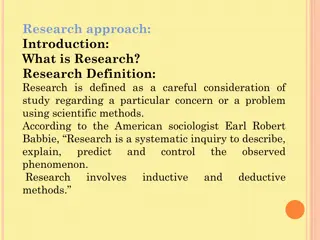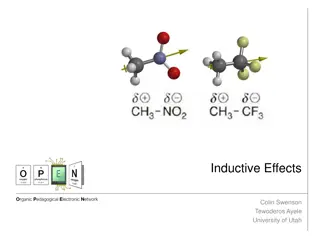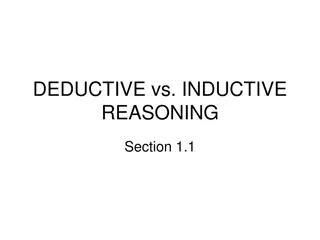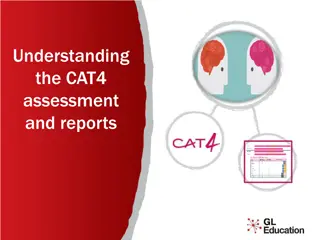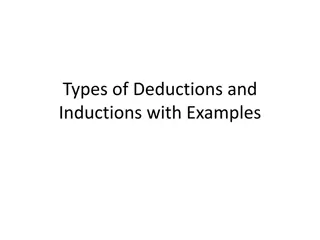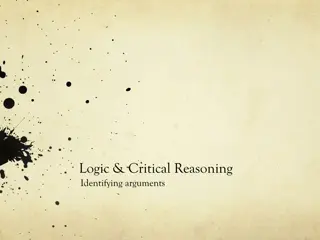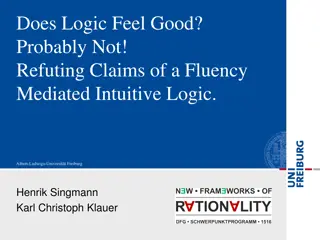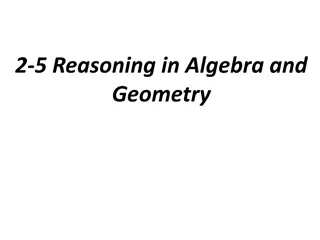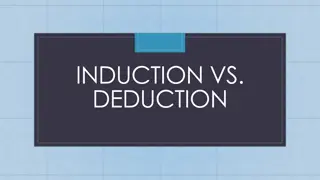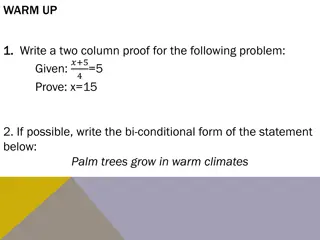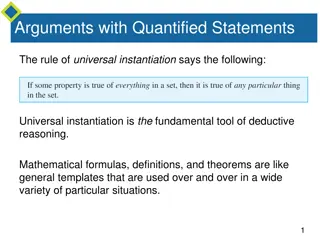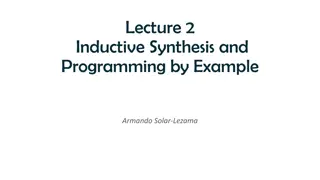Understanding Inductive and Deductive Reasoning
Inductive reasoning involves drawing general conclusions from specific observations, while deductive reasoning starts with general premises to derive specific conclusions. Induction uses experience or experimental evidence to make broad conclusions, while deduction follows from general to specific. Both reasoning methods have their strengths and limitations in logical and scientific contexts.
Download Presentation

Please find below an Image/Link to download the presentation.
The content on the website is provided AS IS for your information and personal use only. It may not be sold, licensed, or shared on other websites without obtaining consent from the author. Download presentation by click this link. If you encounter any issues during the download, it is possible that the publisher has removed the file from their server.
E N D
Presentation Transcript
InductIve vs. deductIve: InductIve vs. deductIve : Inductive and deductive are commonly used in the context of logic, reasoning, and both inductive and deductive reasoning as part of the scientific method. The difference involves whether the reasoning moves from the general to the specific or from the specific to the general. science. Scientists use
What does What does inductive inductive mean? mean? Inductive is used to describe reasoning that involves using specific observations, such as observed patterns, to make a general conclusion. This called induction. Induction starts with a set of premises, based mainly on experience or experimental evidence. It uses those premises to generalize a conclusion. method is sometimes
For example, let s say you go to a cafe every day for a month, and every day, the same person comes at exactly 11 am and orders a cappuccino. The specific observation is that this person has come to the cafe at the same time and ordered the same thing every day during the period observed. A general conclusion drawn from these premises could be that this person always comes to the cafe at the same time and orders the same thing. While inductive reasoning can be useful, it s prone to being flawed. That s because conclusions drawn using induction go beyond the information contained in the premises. An inductive argument may be highly probable, but even if all the observations are accurate, it can lead to incorrect conclusions.
What does What does deductive deductive mean? mean? Deductive reasoning (also called deduction) involves starting from a set of general premises and then drawing a specific conclusion that contains no more information than the premises themselves. Deductive reasoning is sometimes called deduction (Note: that deduction has other meanings in the contexts of mathematics and accounting).
For example: Chickens are birds; all birds lay eggs; therefore, chickens lay eggs. Another way to think of it: if something is true of a general class (birds), then it is true of the members of the class (chickens).




